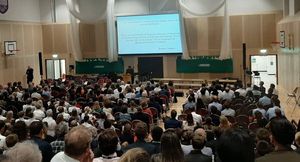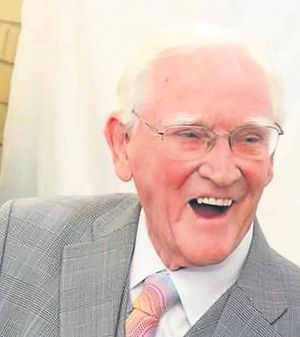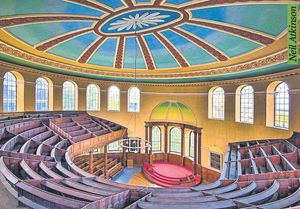
How many needs we all have! We must breathe in oxygen every few seconds, eat food every day and sleep for hours every night. Life is impossible unless our basic needs are met. We need to love and be loved – life would be intolerable if everyone rejected us. But that is not all. We need the Lord Jesus Christ too. Let me try to explain why.
In 2002 a film was made of the life of the late Jacques Derrida, the French philosopher who originated the philosophical concept of ‘deconstruction’. Trailed by the camera crew, he walked into his library. The interviewer gazed around and asked if he had read all those books. ‘No’, he replied, ‘only four of them. But I read those very, very carefully’.
Four small books
There are four little books that everyone should read – the Gospels of Matthew, Mark, Luke and John. They recount the life of the most remarkable and influential person this world has ever seen, Jesus of Nazareth.
He made the greatest claims anyone has ever made. He said, for example, that he was ‘the light of the world’. Those are either the words of an egomaniac or a deceiver – or else they are the words of God in human flesh. That was just one of his claims. And he endorsed them all by a blameless life and by extraordinary signs and miraculous power.
Have you ever examined the claims of Christ? If not, then you are in a state of ignorance and you need to know what Jesus said and did. How can you reject what you do not know?
Pressures of conscience
Firstly, we need Christ because we are morally bankrupt – sinners by nature and practice. If you do not know Christ, you are missing out on something of enormous significance.
At 71 Michael Aspel, the former newsreader and presenter of This Is Your Life, looked back over a life of fame but also much unhappiness. ‘I just regret a lot of things that have happened. Without getting maudlin, I’m basically not a happy person’ (The Independent, 25 May 2004). He suffers from the pressures of his own conscience. His interviewer detected ‘ravines of doubt under the buffed carapace’. Whatever that means it doesn’t sound good!

His first wife said, ‘He always had a roving eye. He is driven by sex and ambition’. He has been married three times and now lives with a fourth woman. He is not religious; he sometimes prays. He is drawn particularly to religions that ‘clear your card along the way’. But real religion is not like that.
A preacher called Brownlow North had also lived an abandoned life. But at 44 he found forgiveness in Jesus Christ – the one who promised, ‘Come to me, and I will give you rest’.
North felt deep repentance for his wasted years, saying, ‘What will my 44 years of following the devices of my own heart profit me? In a few minutes I shall be in hell, and what good will all these things do to me, for which I have sold my soul?’

But his bad record was cleared through faith in Christ – the sacrificial ‘Lamb of God’ who gave his life voluntarily to take away the sins of those who trust in him. From that day on, Brownlow North spent his life serving man and God.
Source of energy
We also need Christ because of our weakness. God requires me to please him in everything. He calls on me to love him with all my heart and love my neighbour as myself. Who is strong enough to live like that?
God tells me to forgive someone who offends me ‘seventy times seven’ times. He tells me that I must overcome with good the evil others do to me. Can you do that? Yet this is the standard God sets – and by which we will be judged.
Nor is this some kind of religious option. The law of Christ demands that everyone should live like this.
Impossible, you say. Yet I cannot believe that God, who made man, has given him a hopelessly idealistic set of commandments, that only tantalise and frustrate. Rather, the God who commands me to be holy must also enable me to comply with his demands.
How can this be? Through the power of Jesus Christ. He provides a source of energy to lift our lives above the commonplace. God promises that his own Son will live within us – that every believer in Jesus Christ will have constant access to the indwelling Spirit of the Saviour.
As our weakness drives us to him for strength, we find again and again that we can live a life pleasing to God through his extraordinary enabling.
Fearing no evil
Again, we need Christ because of the future. What future is that? There lies before most of us retirement, old age, and then death. This body that I care for – washing it, feeding it, running to the doctor when it malfunctions – will one day finally break down. Life will vanish, leaving my body fit only to be buried or cremated.
But wait a moment. Did not Jesus Christ rise from the dead on the third day? So what is ultimate reality? Is it the grave or the risen Son of God? By his resurrection Jesus shows that he is more powerful than death – he claimed to be ‘the resurrection and the life’.

When atheist Jonathan Miller compares life after death to ‘a disembodied vapour like a gas leak’, he finds the prospect desolating. Who wouldn’t? His pitiful picture is far removed from the Christian hope of resurrection – which anticipates a transfigured body like Christ’s risen body, and eternal life in ‘new heavens and a new earth’.
Miller claims that more and more people are now looking unflinchingly at their own extinction. They think they will be snuffed out like a candle and their meaningless life will terminate in non-existence – and they view the prospect with equanimity!
Perhaps so, but for most of us this bleak concept is unthinkable. We cannot contemplate simply ceasing to be – removed eternally from every relationship and experience that has given us joy.
On the contrary, we long to share the Psalmist’s confidence: ‘Yea, though I walk through the valley of the shadow of death, I will fear no evil for thou art with me’. To be able to do so, you need to know the Good Shepherd, Jesus Christ.
The glorious God
Finally, we need Christ because he is the Son of the living God. How breathtaking, that in Christ we may know the mighty God in his unparalleled greatness. He is ‘the high and lofty one who inhabits eternity, whose name is holy’ (Isaiah 57:15) – the self-existent God who calls himself ‘I am that I am’ (Exodus 3:14).
What we consider infinite space is merely a speck floating on his eternal vision. He has no boundaries, no edges, no centre, no single place where his essence is located. Everything in creation exists in total dependence on his sustaining word.
As each fleeting second passes the cosmos hangs upon his will. With what ease he made everything! With equal ease he could also destroy everything. How easily he could destroy me. How amazing, then, that he loved the world enough to send his Son.
The more we are aware of how mighty he is – and how insignificant we are – the more we discover what we are, and what is our purpose in life. There is only one way to know this God, and that way is a person, the Lord Jesus Christ.
No one can come to God except by him. He is the only mediator with God – our shield, our protector, and our faithful Saviour. You do need the Lord Jesus Christ.


















